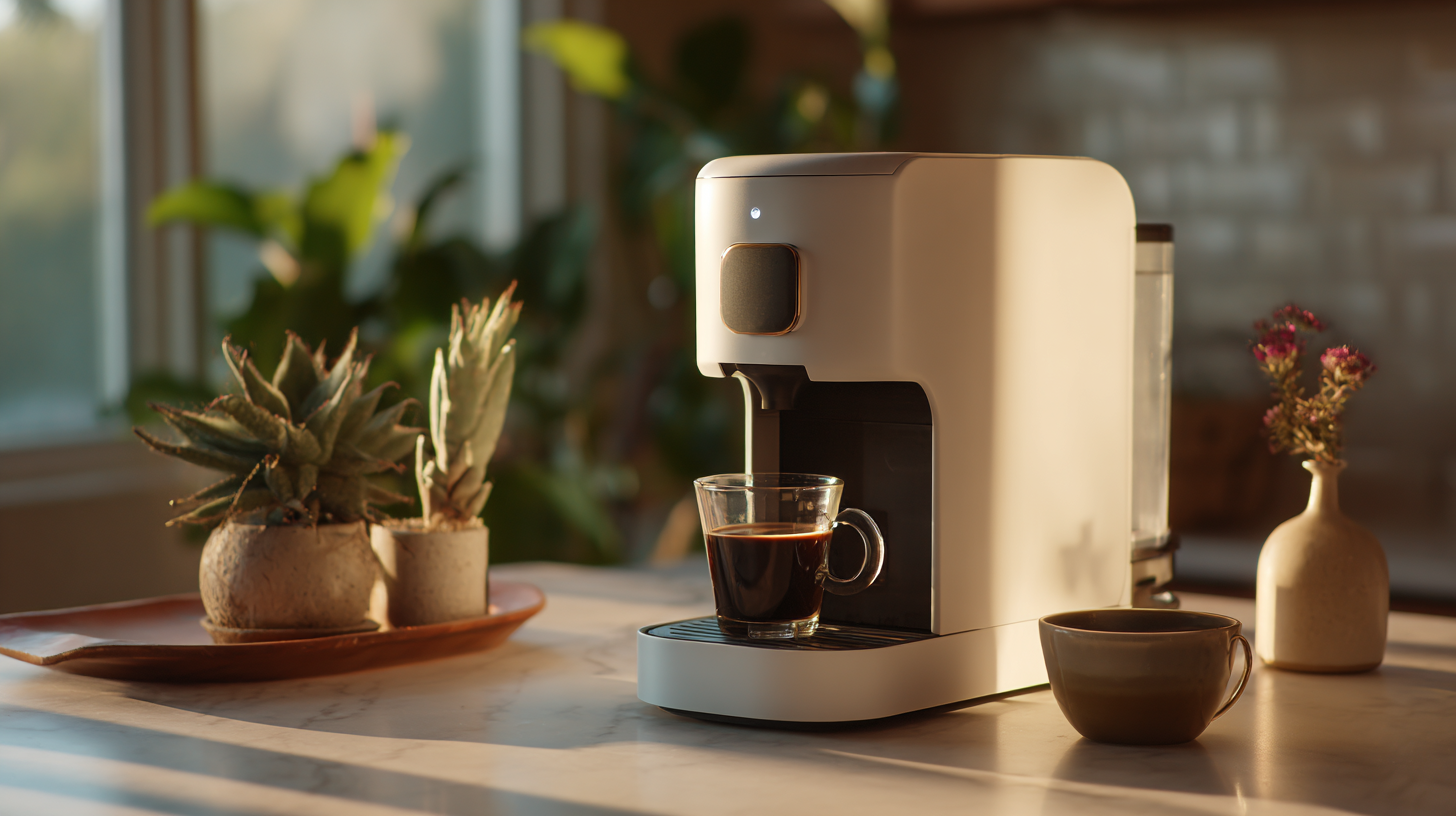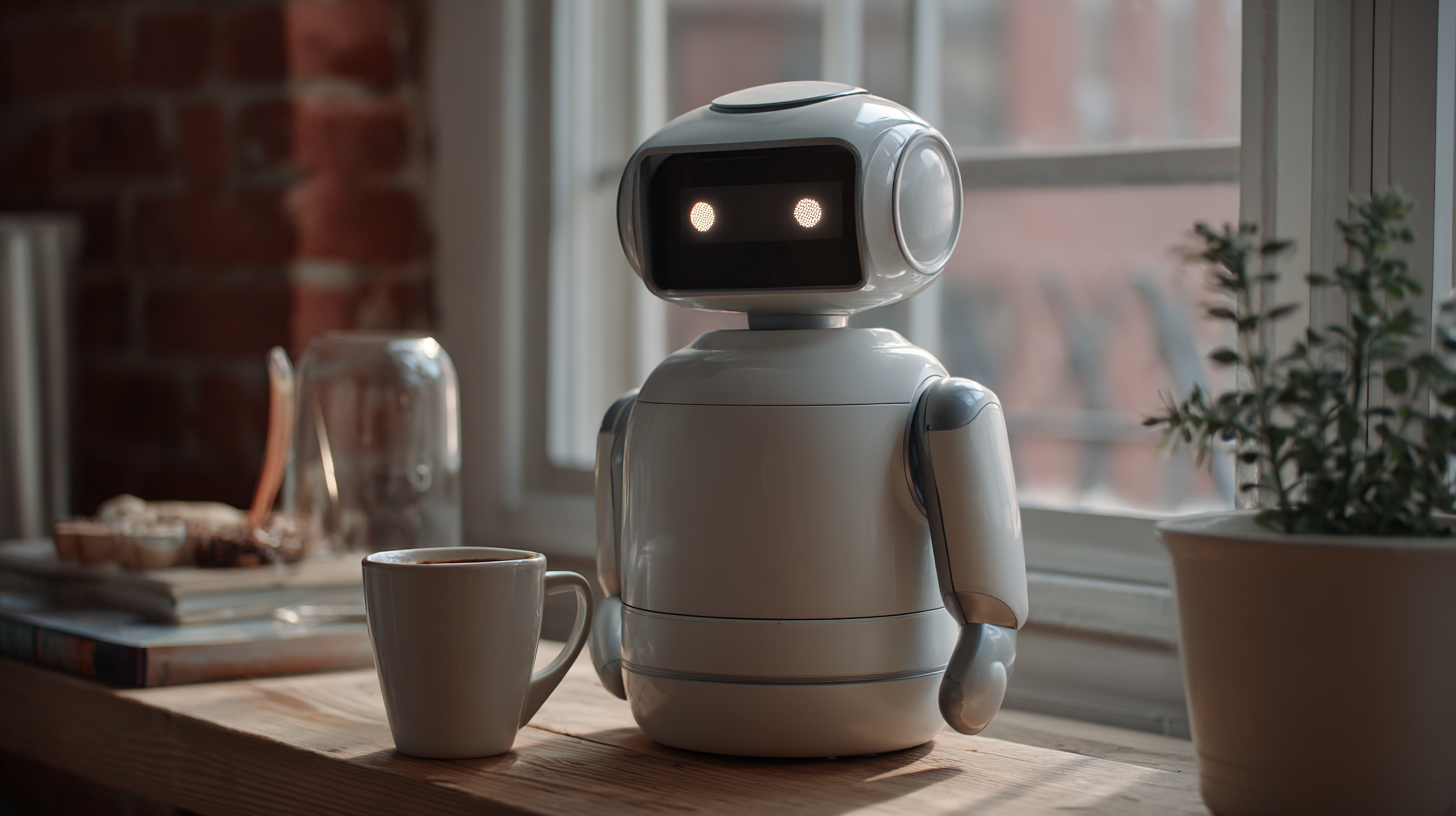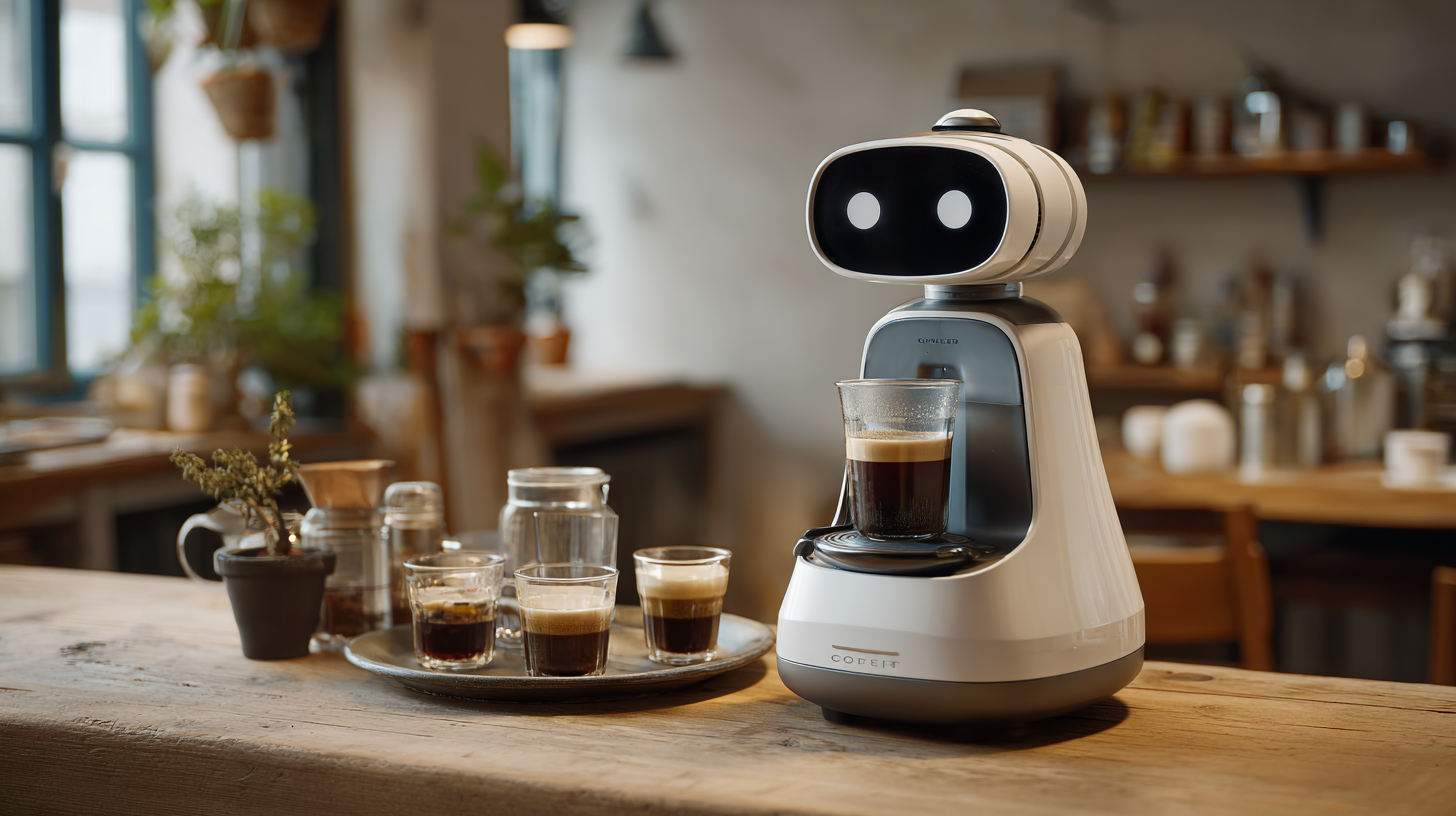How Coffee Robots Are Revolutionizing Your Morning Routine: The Future of Brewing
In an era where technology continually reshapes our daily lives, the coffee industry is no exception. Coffee robots are beginning to transform our morning brewing rituals, merging convenience with innovation. According to a recent report by the International Coffee Organization, the global coffee market is projected to reach $155.64 billion by 2026, with automation playing a crucial role in this growth. This shift towards automated brewing solutions reflects not only changing consumer preferences but also a burgeoning demand for efficiency in our busy mornings.
 Experts predict that the integration of coffee robots in households and offices will soon become a norm. "The future of coffee preparation lies in the hands of technology. Coffee robots are not just a trend but a revolution in enhancing the brewing experience," says Dr. Sarah Whitaker, a leading authority in culinary automation. The precision and consistency offered by these machines eliminate the guesswork often associated with brewing coffee, allowing consumers to enjoy a gourmet-quality experience at their fingertips.
Experts predict that the integration of coffee robots in households and offices will soon become a norm. "The future of coffee preparation lies in the hands of technology. Coffee robots are not just a trend but a revolution in enhancing the brewing experience," says Dr. Sarah Whitaker, a leading authority in culinary automation. The precision and consistency offered by these machines eliminate the guesswork often associated with brewing coffee, allowing consumers to enjoy a gourmet-quality experience at their fingertips.
As we delve into the future of brewing, it’s evident that coffee robots are set to redefine our relationship with this beloved beverage, making the art of coffee-making more accessible than ever before.
How Coffee Robots Enhance Precision in Brewing Your Favorite Cup
In recent years, coffee robots have emerged as game-changers in the world of brewing, enhancing the precision of your morning cup. With the ability to accurately measure coffee grounds and water ratios, these innovative machines ensure a consistently perfect brew. The integration of advanced technologies such as smart scales allows users to control every aspect of their coffee-making process, resulting in a flavor profile tailored to individual preferences.

Understanding the Technology Behind Coffee Brewing Robots
Coffee robots are transforming the way we brew our favorite morning beverage, offering a blend of precision and convenience that traditional methods can’t match. These smart machines utilize advanced technology, including artificial intelligence and automated brewing techniques, to deliver the perfect cup of coffee tailored to individual preferences. By analyzing taste profiles and adjusting variables such as temperature, grind size, and water quality, these robots ensure that every brew is consistent and flavorful.
**Tips for Using Coffee Robots:** 1) Experiment with settings to find your ideal flavor profile; don’t hesitate to adjust strength and temperature to suit your taste. 2) Keep the machine clean and regularly maintain it for best performance; this helps avoid any leftover residues affecting the flavor of your coffee.
Moreover, coffee robots often connect to smartphone apps, allowing users to schedule brewing times or customize recipes remotely. This integration not only streamlines your morning routine but also enhances the overall coffee experience by providing convenience and control at your fingertips. As technology continues to evolve, the way we brew coffee is becoming more personalized and efficient, making robotic coffee makers an exciting addition to your kitchen.
How Coffee Robots Are Revolutionizing Your Morning Routine
The Impact of Automated Brewing on Coffee Quality and Taste
As coffee robots become an integral part of our morning rituals, their impact on brewing quality and taste is undeniable. Automated brewing systems, equipped with precise technology, ensure that each cup is brewed to perfection. By controlling variables such as water temperature, grind size, and brew time, these robots create consistently rich flavors that traditional brewing methods might find challenging to replicate. The result is a coffee experience that minimizes the guesswork and maximizes enjoyment.
Furthermore, coffee robots often integrate advanced sensors and algorithms that adapt to the beans' characteristics. This innovation means that even subtle changes in bean freshness or origin can be accounted for, preserving the coffee's integrity and taste. The future of coffee brewing is not just about convenience; it's about elevating quality at every step.
Tip: Invest in high-quality beans and store them properly to ensure that your coffee robot can deliver the best flavors. Freshness is key—try to use beans within two weeks of roasting for optimal taste.
Market Trends: The Rise of Coffee Robots in Home and Commercial Settings
The coffee industry is undergoing a significant transformation with the emergence of coffee robots, a trend that is reshaping both home and commercial brewing environments. According to a recent market research report by Grand View Research, the global coffee machine market is projected to reach USD 12.75 billion by 2027, with automated coffee makers increasingly appealing to tech-savvy consumers. These robots not only save time but also promise consistency in flavor and quality, factors that are vital in both home kitchens and bustling café settings.

In commercial venues, the adoption of coffee robots has surged, with a 35% increase in usage reported among coffee shops and restaurants in 2022 alone. This rise can be attributed to the growing demand for high-quality artisanal coffee without the need for extensive barista training. A study by Statista indicates that over 60% of coffee consumers are more likely to frequent establishments that utilize advanced brewing technology, reinforcing the notion that innovation directly impacts customer satisfaction. As coffee robots continue to evolve, they are becoming an essential component of the coffee experience, driving market trends forward in an industry poised for major growth.
Comparative Analysis: Traditional Brewing vs. Robotic Brewing Efficiency
The evolution of coffee brewing has taken a significant turn with the introduction of robotic systems, which streamline and enhance the brewing process. Traditional methods often involve manual labor and require meticulous attention to detail, leading to inconsistencies in flavor and quality. According to a report by the Specialty Coffee Association, over 67% of baristas experience challenges related to maintaining brewing consistency with conventional brewing methods. In contrast, robotic coffee machines utilize precise algorithms to ensure that each cup is brewed with uniform extraction rates, greatly reducing the margin for error.
Further analysis reveals that robotic brewing systems can significantly reduce the brewing time while improving efficiency in busy environments. A study conducted by the National Coffee Association highlights that robotic brew methods can cut preparation time by up to 30%, allowing cafes and restaurants to serve more customers promptly. Additionally, these systems can monitor and record brewing parameters, providing invaluable data that can lead to optimization of flavor profiles based on customer preferences. As technology advances, it's clear that the future of coffee brewing not only prioritizes speed and efficiency but also quality and personalization, solidifying the role of coffee robots in modern rituals.
